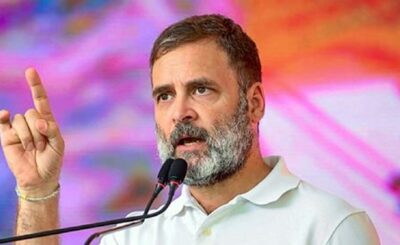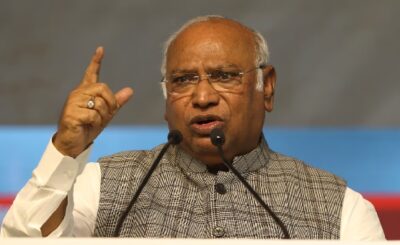Dubai, Dec 8:
Observing that attribution science is improving by the day, a top World Meteorological Organisation official has said that climate change is impacting everything to such an extent that attribution studies to link any event to global warming are not “really” required.
In an interview on the sidelines of the international climate negotiations here, the World Meteorological Organisation (WMO) deputy secretary general Elena Manaenkova said the world is probably much closer to a point where the average temperature rise will reach 1.5 degrees Celsius above the pre-industrial (1850-1900) levels.
Answering a question on the credibility of attribution studies, she said, “These studies are also improving like any other science and right now, they give good reliability to a lot of events that can be connected to climate change.” However, she said climate change is impacting everything so much that “the requirement of attributing any event to climate change, in my view, is an unnecessary burden”.
“Yes, science is now capable of attributing most of these events, but what difference does it really make?” Manaenkova, who’s attending her 17th UN climate conference, shared her insights.
Asked how realistic it is to limit warming to 1.5 degrees Celsius, she said the world is probably much closer to the CO2 concentration in the atmosphere, which will commit it to 1.5 for the long term.
“CO2 sits in the atmosphere for thousands of years; the natural cycle doesn’t remove it from the atmosphere. The world needs to ensure that the CO2 concentration doesn’t exceed the threshold necessary to limit the average temperature rise to 1.5 degrees Celsius,” the physicist said.
“Thereafter, you’ll be sure, after some ups and downs, that it (the average temperature rise) will stabilise at 1.5 degrees Celsius or 1.7 degrees Celsius or whatever we will have,” she said.
Earth’s global surface temperature has risen by around 1.15 degrees Celsius, and the CO2 spewed into the atmosphere, largely due to the burning of fossil fuels since the start of the Industrial Revolution, is closely tied to it.
In the business-as-usual scenario, the world is heading for a temperature rise of around 3 degrees Celsius by the end of the century, scientists have warned.
According to the WMO, the year 2023 is set to be the hottest on record. According to a report released by a global team of around 120 scientists on Tuesday, atmospheric CO2 levels stand at 419.3 parts per million in 2023, 51 per cent above pre-industrial levels.
If current CO2 emissions levels persist, the remaining carbon budget for a 50 per cent chance to limit warming to 1.5 degrees Celsius could be exceeded in 7 years, and in 15 years for 1.7 degrees Celsius, they said.
Asked if climate change is making weather prediction difficult, Manaenkova said while climate change makes it a bit tougher, it is not the only reason it is tricky.
“What makes weather prediction less difficult is the improvement in modelling technology, an abundance of observations, and the understanding of atmospheric processes,” she said.
The WMO deputy chief highlighted the need to improve long-term climate projections, saying it would be much more helpful “if we started giving quantitative predictions” and not just probabilities.
Climate projections are getting better at helping experts understand climate change, but they are still really complex and hard for cities and businesses to use, she said.








